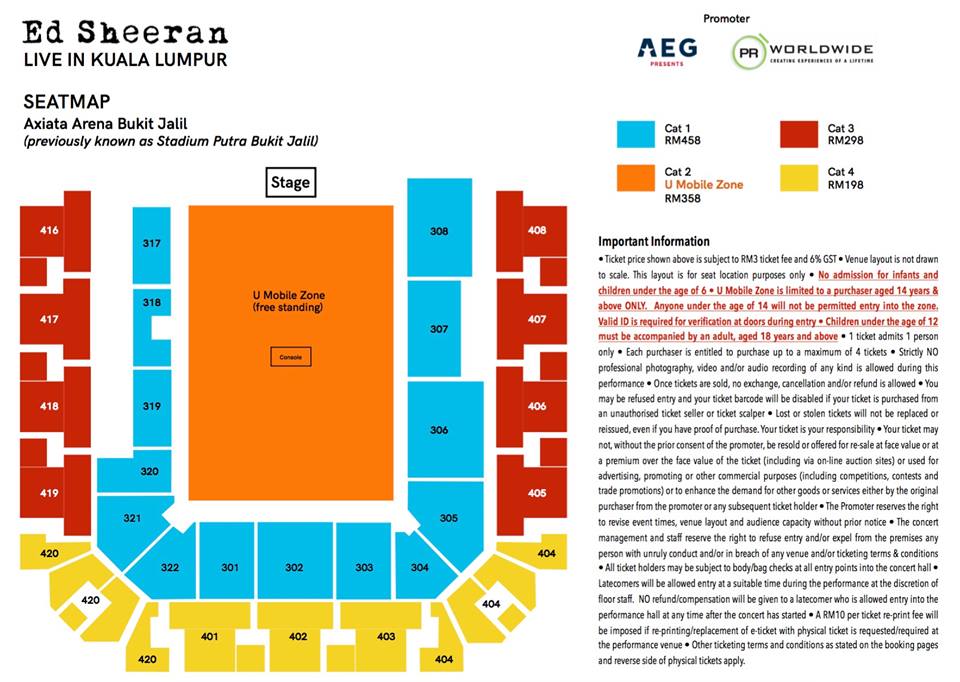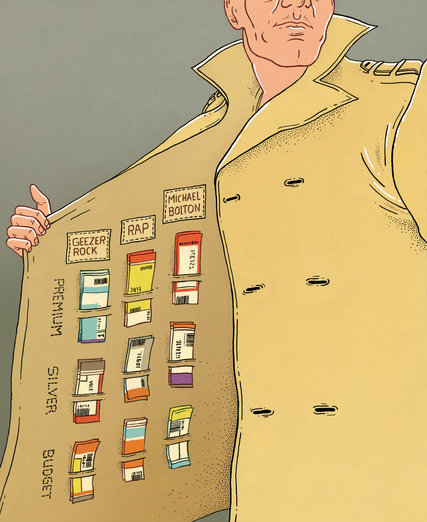

Contract
Re-selling your concert tickets in Malaysia may get you in trouble. Here's why
almost 7 years ago Denise C.The sales of all 12,000 tickets of Ed Sheeran's concert in 30 minutes was not a joyous occasion for many fans due to the simple fact that many tickets were allegedly snapped up by those who sought to resell them for a quick profit - apparently jacking prices up to RM8369 in some reports. This situation has resulted in certain ticketing agents invalidating tickets in order to act against those who have shown suspicious behaviour.
But the question is, does the law forbid ticket resales or is it a grey area of ethics? There are two scenarios that you would generally encounter in ticket reselling - ticket scalping and/or reselling for genuine reasons. Ticket scalping refers to individuals selling their tickets for exorbitant prices to gain personal profit while reselling refers to people who resell their tickets due to their inability to make it to the concert, usually at the same or lower prices.
This article aims to clarify how a contract is formed when you purchase a ticket and what would happen if you resell (or scalp) a ticket.
Reselling tickets is not technically a crime.
Image from The New York Times.
A criminal wrong (aka "crime") is essentially an act which contravenes the laws of a country in a way that not only harms the individual that the act was carried out against but also the society as a whole. Such acts would entail an action between the government and the accused.
A quick look into our Penal Code reveals no section which touches on the issue of reselling tickets. So, wait. If it's not in the Penal Code, then does that mean it's okay for me to sell my tickets?
You might want to pause for a moment there because while it may not be a criminal wrong, it can still fall under a civil action. A civil action is essentially a lawsuit between two private parties, i.e not involving the government. This action is based off the legally enforceable contract between a ticketing agent and yourself, as a buyer
But how can a ticket be a contract? I didn't sign anything!
Image from thefourohfive.com
Contrary to popular belief, contracts do not have a set format. There are written and unwritten contracts (also known as implied contracts). For cases involving tickets, the case of Parker v South Eastern Railway shows that if you have a ticket containing terms, then you are bound by those terms as it is akin to signing a document. Furthermore, as established in the case of L'Estrange v Graucob, signing an agreement means that you are bound by all contractual terms.
[Read more: Is an unwritten contract legally binding in Malaysia?]
[Read more: What happens if you sign a contract without reading it?]
In essence, contracts are formed by an agreement between parties to act in a certain manner, PLUS legal considerations as shown by section 10(1) of the Contracts Act 1950:
"All agreements are contracts if they are made by the free consent of parties competent to contract, for a lawful consideration and with a lawful object, and are not hereby expressly declared to be void."
But it's in how these contracts are formed that's really interesting because...
The contract is actually formed by you, not the agent
In our ticketing scenario, a contract is formed when you offer to buy tickets from the agent and they agree to sell it to you.
However, this may not sound right, since it should be the other way around, as it's the ticketing agents who are making offers to you through their advertisements, right? So how can you make an offer when you want the tickets that are being offered?
Help. Image from SomethingAwful
Actually, looking at case law, it might be YOU making the offer instead. It is understood in law that not all statements which initiate a contract can be considered an offer. They might actually be an invitation to treat
In Contract Law (11th Edition), Ewan McKendrick defines invitations to treat as an expression of willingness to enter into negotiations which may lead to a contract. In other words, an invitation to treat is merely demonstrating that you are ready to receive offers.
If you are wondering how to distinguish between an offer and an invitation to treat, the Malaysian case of Eckhardt Marine GMBH v Sheriff, High Court of Malaya, Seremban & Ors stated that:
"...as a general rule, an advertisement is considered by courts to be...a mere invitation to treat..." - Gopal Sri Ram JCA (as he then was).
The logic behind considering advertisements as invitations to treat is explained in Partridge v Crittenden, where Lord Parker CJ said that it made good business sense as otherwise, sellers would be contractually obliged to sell more goods than they had.
So, in our concert scenario, if all advertisements by ticket agents are considered offers, they would be sweating buckets over the breach of contract actions brought by dismayed fans who failed to purchase tickets.
In a nutshell, by purchasing tickets, you are making the agents an offer to buy tickets in exchange for money, which they accept by providing tickets.
Does this mean that I cannot sell my ticket to a friend if I suddenly cannot make it?
As discussed above, there are typically two scenarios involving resales of tickets - (i) scalping and (ii) genuine reasons.
Generally, terms contained in a concert ticket would cover any kind of resales. This means that it does not matter whether you are selling it at face value, at a premium or at a loss. A clear example would be the terms for Ed Sheeran's upcoming concert in KL:
 Image from Ed Sheeran Live in Kuala Lumpur 2017 Facebook's page. Click for full image
Image from Ed Sheeran Live in Kuala Lumpur 2017 Facebook's page. Click for full image
For now, it is unclear whether any actions would be taken against resellers with genuine reasons. It appears that PR Worldwide, the event organisers for the upcoming Ed Sheeran concert who has invalidated certain tickets, is more focused on tackling the issue of scalping:
"...suspicious transactions would go on a blacklist. If we find that those tickets have been put up for resale, then the barcode will be disabled...to prevent individuals from reselling the tickets at atrocious prices and to discourage the public from buying from buying tickets from scalpers..." - Anita Baskaran,Director of PR Worldwide, as quoted by The Star.
MyTicket.Asia, the sole authorised ticketing agent takes a similar stance with PR Worldwide with regards to scalping and provides some insight as to how genuine sales would be dealt with:
"...resale of ticket(s) at any price is strictly prohibited. Unlawful resale...will lead to seizure and cancellation...without refund or any compensation..." - MyTicket.Asia, as quoted from a notice on their website.
It seems now that organisers and agents do not distinguish between scalping and genuine reasons. Therefore, it is probably best to give the event organisers or ticketing agents a ring to ask what steps can you take if you ever find yourself with a conflicted schedule. After all, it is best not to tread in the twilight zone of legality/illegality.
What can happen if I just decide to sell my tickets without calling the agents?
At the end of the day, it appears that a resale in breach of contractual terms (regardless of the price and/or reasons) can result in a claim in damages as shown by section 74 of the Contracts Act 1950:
When a contract has been broken, the party who suffers is entitled to receive, from the party who has broken the contract, compensation for any loss or damage caused to him...which naturally arose...from the breach...
In addition to the above, since terms typically reserve the ticketing agent's right to invalidate resold tickets, this invalidation term can be enforced against you as it forms part of your contract.
"No no I clean"


